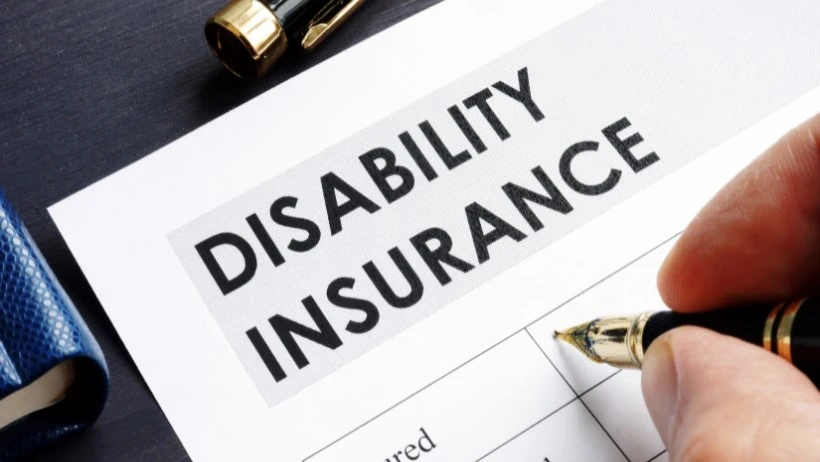
This article aims to demystify disability insurance, guiding you through its importance, types, and how it works, and how Aaron Engle Law can assist you in securing your future against these unexpected challenges.
Why Do You Need Disability Insurance?
“Why do I need disability insurance?” is a question that resonates with many, especially in a world where anything can transform lives in an instant.
Disability insurance serves as a critical financial safety net, designed to protect you and your family from the economic hardships that often accompany unexpected illnesses or injuries that prevent you from working.
The primary purpose of disability insurance is to replace a portion of your income during periods when you’re medically unable to perform your job.
This form of insurance is especially important considering the statistics; there’s a significant chance of experiencing a disability before reaching retirement age.
Without disability insurance, an unforeseen disability can not only disrupt your career but also lead to severe financial strain, depleting savings or leading to debt.
Moreover, disability insurance offers peace of mind. It ensures that, even in the face of adversity, you can maintain your standard of living, meet your financial obligations, and focus on your recovery without the added stress of financial instability.
Types of Disability Insurance
Understanding the types of disability insurance is essential in choosing the right coverage for your needs. Predominantly, there are two types: short-term and long-term disability insurance, each catering to different aspects of income protection.
Why Do I Need Short-Term Disability Insurance?
Short-term disability insurance is designed for temporary absences from work due to illnesses, injuries, or childbirth. This insurance typically kicks in soon after you’re unable to work, often within a week or two, and provides financial support for a few months up to a year.
It’s crucial for situations where you expect to recover and return to work relatively quickly.
Short-term disability insurance ensures that during this brief period, you can focus on recovery without the stress of immediate financial pressures, maintaining your regular living expenses and commitments.
Why Do I Need Long-Term Disability Insurance?
Long-term disability insurance, on the other hand, is intended for more severe, lasting medical conditions that keep you out of work for longer periods.
These policies usually start after short-term disability benefits end (after the elimination period) and can extend for several years or even up to retirement age.
Long-term disability insurance is vital because it addresses the risk of losing your income for an extended period. Such coverage becomes a financial lifeline, providing stability and security when facing a long-term health challenge.
It ensures that despite a prolonged absence from work, your financial obligations, such as mortgage payments, education fees, or day-to-day expenses, are manageable.
Do I Still Need Disability Insurance After I Have Retired?
Once retired, the need for disability insurance usually decreases, as you’re no longer reliant on employment income but rather on retirement savings and pensions. At this stage, long-term care insurance might be more relevant, covering costs for chronic illnesses or disabilities in retirement.
If you continue working post-retirement, disability insurance could still be beneficial to protect any earned income. Ultimately, it’s important to assess your financial situation and consult with a financial advisor to determine the best insurance strategy for your retirement.
Choosing the Right Fit: Short-Term vs. Long-Term Disability Insurance
In summary, while both types of disability insurance serve the common purpose of protecting your income, they differ in duration and scope.T
Short-term disability insurance is your immediate buffer against sudden income loss due to temporary health issues, while long-term disability insurance is a long-haul safety net for more serious, enduring health problems.
Understanding these distinctions is key to securing comprehensive protection for your future, regardless of what health challenges you may face.
How Does Disability Insurance Work?
Understanding how disability insurance functions is key to recognizing its value in your financial planning. At its core, disability insurance is designed to replace a portion of your income when a medical condition impairs your ability to work.
The process, while straightforward, involves several critical aspects that potential policyholders should be aware of.
What is not Covered?
- Pre-existing Conditions: Generally, disabilities arising from conditions you had before obtaining the policy are not covered if you make a claim within 12 months of being covered under an employer provided policy. Some of your pre-existing medical conditions could be excluded under an individual policy.
- Specific Exclusions: Each disability insurance policy has its exclusions, such as injuries from risky activities or self-inflicted harm.
- Short-Term Illnesses: Most policies exclude brief illnesses, focusing instead on more prolonged incapacities.
How to Obtain It?
- Through Employers: Many receive disability insurance as a part of their employee benefits package.
- Individual Policies: For more personalized coverage, you can purchase a policy directly from an insurance provider.
- Consulting Professionals: A Legal and financial professional can offer guidance tailored to your specific needs and circumstances.
What Will Disability Insurance Cost?
The disability insurance costs vary based on factors like age, occupation, income level, and the specifics of the policy chosen. Generally, premiums can range from 1% to 3% of your annual income.
Who Requires Disability Insurance?
- Working Individuals: Anyone who relies on their income to support themselves and their families should consider individual disability insurance.
- Self-Employed Professionals: Without employer-provided benefits, securing an individual policy with an insurance company is even more crucial.
- Those Without Substantial Savings: If savings can’t cover an extended period without income, disability insurance is essential.
In essence, disability insurance is a pivotal component of a robust financial safety net. It ensures that should you face an unexpected health issue, that you’re not left grappling with financial instability on top of your medical concerns.
By understanding what is covered, how to obtain the insurance, and who needs it, you’re taking a proactive step in safeguarding not just your income but also your peace of mind and future well-being.
How Aaron Engle Law Can Help You With A Disability Insurance Denial?
Navigating the complexities of a disability insurance denial can be daunting, but Aaron Engle Law is here to guide you every step of the way. With our expertise, we ensure that the insurance company properly handles your claim and that you meet your burden of proof. For over 17 years, we have been fighting insurance companies on behalf of real people like you who have had their claim denied. We know how to win.
Reach out to us for dedicated support in securing your financial future against life’s uncertainties. Let’s work together to safeguard what matters most to you.
